
‘They deserve another chance too’: Palazzo Stables rescues four horses slated for kill farm
Shawntel Palazzo couldn’t resist the plea she saw on Facebook to rescue four Amish work horses in Pennsylvania before they could be sent to a kill farm in Mexico.

No bet limits and slot machines possible changes to New Hampshire’s casinos
At New Hampshire casinos, bets on poker, blackjack and other games of chance are currently capped at $50 — but that could change.
Most Read
 House committee defunds relief program for mothers and children, spares SNAP incentives
House committee defunds relief program for mothers and children, spares SNAP incentives
 No high-speed E-ZPass at Hooksett tolls for at least two months
No high-speed E-ZPass at Hooksett tolls for at least two months
 New Hampshire law enforcement to step up traffic enforcement on Route 106
New Hampshire law enforcement to step up traffic enforcement on Route 106
 Schools in Lakes Region explore creating a special education school to bring down costs
Schools in Lakes Region explore creating a special education school to bring down costs
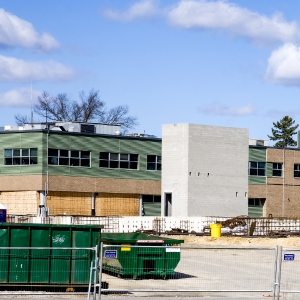 Work continues on new state psychiatric hospital in Concord
Work continues on new state psychiatric hospital in Concord
 House committee reverses vote, adopts prohibition on DEI activities and spending
House committee reverses vote, adopts prohibition on DEI activities and spending
Editors Picks
 More New Hampshire law enforcement departments partner with federal immigration agencies
More New Hampshire law enforcement departments partner with federal immigration agencies
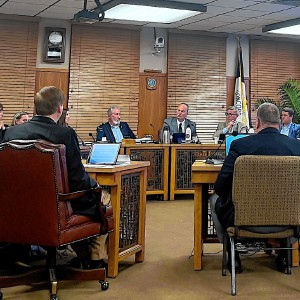 ‘That wasn’t the charge we were given’ – New city councilors question golf clubhouse options
‘That wasn’t the charge we were given’ – New city councilors question golf clubhouse options
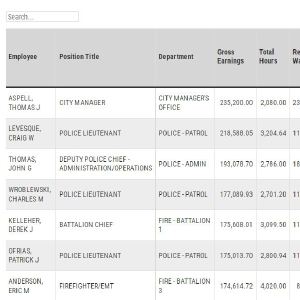 Sunshine Week: Searchable database of what Concord city employees were paid in 2024
Sunshine Week: Searchable database of what Concord city employees were paid in 2024
 Immigrants in New Hampshire face uncertainty as temporary protections expire soon
Immigrants in New Hampshire face uncertainty as temporary protections expire soon
Sports

Monitor names winter 2024-25 Players of the Season
Although Monday marks the first day of the NHIAA spring season with practices and tryouts happening on baseball and softball diamonds, lacrosse fields, tracks and tennis courts throughout the state, it’s been just over a week since the winter season concluded.
 Boys’ basketball: Pembroke tops Sanborn to claim D-II state title
Boys’ basketball: Pembroke tops Sanborn to claim D-II state title
Opinion

Karishma Manzur, Ph.D. is a science writer living in Exeter. She volunteers with various groups, including the New Hampshire Coalition for a Just Peace in the Middle East, which includes state chapters of Veterans for Peace, Jewish Voice for Peace, Peace Action and several other organizations.
 Opinion: Courage and care count
Opinion: Courage and care count
 Opinion: What rough beast is slouching toward us to be born
Opinion: What rough beast is slouching toward us to be born
 Opinion: The special education gimmick in NH school voucher rules
Opinion: The special education gimmick in NH school voucher rules
 Opinion: What Trump really means by government efficiency
Opinion: What Trump really means by government efficiency

Your Daily Puzzles

An approachable redesign to a classic. Explore our "hints."

A quick daily flip. Finally, someone cracked the code on digital jigsaw puzzles.

Chess but with chaos: Every day is a unique, wacky board.

Word search but as a strategy game. Clearing the board feels really good.

Align the letters in just the right way to spell a word. And then more words.
Politics

Town elections offer preview of citizenship voting rules being considered nationwide
A voter in Milford, New Hampshire, missed out on approving the town’s $19 million operating budget, electing a cemetery trustee and buying a new dump truck. In Durham, an 18-year-old high school student did not get a say in who should serve on the school board or whether $125,000 should go toward replacing artificial turf on athletic fields.
 Medical aid in dying, education funding, transgender issues: What to look for in the State House this week
Medical aid in dying, education funding, transgender issues: What to look for in the State House this week
 On the Trail: Shaheen’s retirement sparks a competitive NH Senate race
On the Trail: Shaheen’s retirement sparks a competitive NH Senate race
 ‘If it affects one, it’s going to affect all’: Dozens protest federal firings in Concord
‘If it affects one, it’s going to affect all’: Dozens protest federal firings in Concord
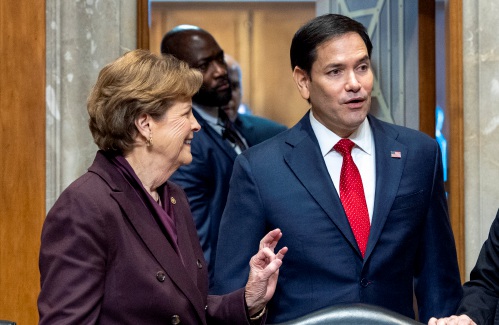 On the Trail: Window closing on Shaheen decision to run in 2026
On the Trail: Window closing on Shaheen decision to run in 2026
Arts & Life
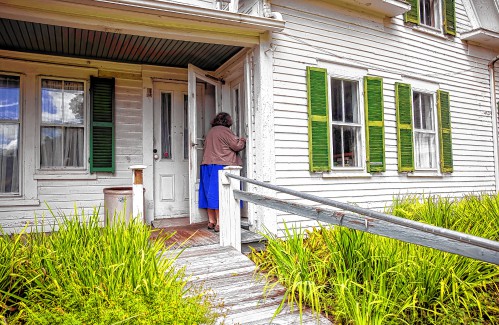
Around Concord: Eagle Pond Farm, its literary inhabitants, and the nonprofit preserving their legacy
The white farmhouse, built at the start of the 19th century, sits tucked into a grassy knoll off a bend in Route 4 with Mount Kearsarge standing watch in the distance. As you drive down the road you’d never know the richness of the history surrounding you until long after the porch and green shutters become a speck in the rearview mirror.
 Around Concord: Cali Arepa brings ‘a little bit of Colombia’ to the Capital Region
Around Concord: Cali Arepa brings ‘a little bit of Colombia’ to the Capital Region
 Around Concord: On-stage dynamite, LEE & DR. G are ‘stunningly live’
Around Concord: On-stage dynamite, LEE & DR. G are ‘stunningly live’
 Around Concord: Glimpse Gallery, new downtown art hub, opens doors for artists, art lovers
Around Concord: Glimpse Gallery, new downtown art hub, opens doors for artists, art lovers
 New Hampshire Jewish Film Festival coming to Red River Theaters
New Hampshire Jewish Film Festival coming to Red River Theaters
Obituaries
 Laura Cilley
Laura Cilley
Webster, NH - Laura Nicole Cilley, 22, passed away unexpectedly on Saturday, March 29, 2025 at her home in Webster, NH. Laura was born on July 20, 2002 in Laconia NH, the daughter of Jon and Dawn (McLelland) Cilley. She enjoyed vol... remainder of obit for Laura Cilley
 Henry D. Roberts
Henry D. Roberts
Henry D. (Hank) Roberts Bow, NH - Henry D. (Hank) Roberts, beloved husband, father, brother and friend, passed away peacefully in his home on March 17th, 2025 leaving a legacy of love, adventure, and service. Hank was born in Concord, N... remainder of obit for Henry D. Roberts
 Warren A. Swindell
Warren A. Swindell
Mont Vernon, NH - Warren A. Swindell, 88, died peacefully at his home in Mont Vernon, NH on Friday, March 28, 2025 with family members by his side. Warren was born on December 2, 1936 in Melrose, MA to Donald O.A. Swindell and Helen I. ... remainder of obit for Warren A. Swindell
 Gerard P. Brochu
Gerard P. Brochu
Loudon, NH - Gerard P. Brochu, 86, of Loudon, passed away on March 28th 2025. He was born in Concord, NH to the late Henri and Lucia Brochu. He was a graduate of Concord High School. He served four years in the Air Force and retire... remainder of obit for Gerard P. Brochu


 Chris Pappas announces bid to succeed Shaheen in US Senate
Chris Pappas announces bid to succeed Shaheen in US Senate
 Evolution Expo bringing wellness to Concord this weekend
Evolution Expo bringing wellness to Concord this weekend
 Trump appoints former New Hampshire environment protection regulator as EPA head
Trump appoints former New Hampshire environment protection regulator as EPA head
 Concord’s USA Ninja Challenge aligned with changes to Pentathlon before LA 2028 Olympics
Concord’s USA Ninja Challenge aligned with changes to Pentathlon before LA 2028 Olympics
 Bow High School senior Albushies wins first place, headed to semifinals in 4-Way Speech Contest
Bow High School senior Albushies wins first place, headed to semifinals in 4-Way Speech Contest
 As part of sweeping cuts, House budget writers vote to abolish nearly 200 positions from N.H. Department of Corrections
As part of sweeping cuts, House budget writers vote to abolish nearly 200 positions from N.H. Department of Corrections

 Boys’ hockey: Concord takes championship in historic quadruple overtime victory over BG, 2-1
Boys’ hockey: Concord takes championship in historic quadruple overtime victory over BG, 2-1 Ex-Celtic Enes Kanter Freedom speaks in NH on human rights advocacy
Ex-Celtic Enes Kanter Freedom speaks in NH on human rights advocacy Basketball: Pembroke’s Berkeley, Franklin’s Kaplan win Player of the Year; All-State teams announced
Basketball: Pembroke’s Berkeley, Franklin’s Kaplan win Player of the Year; All-State teams announced
